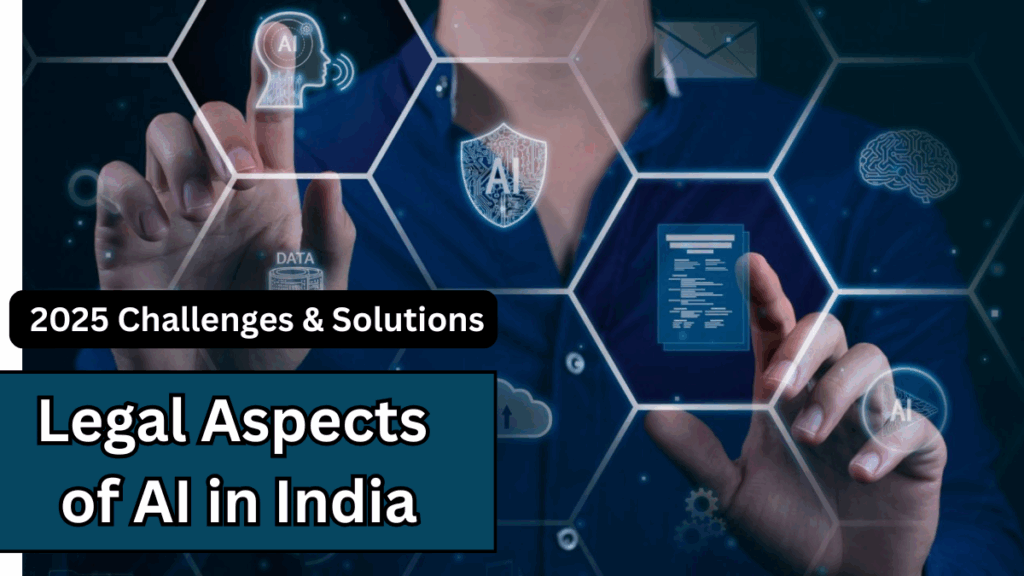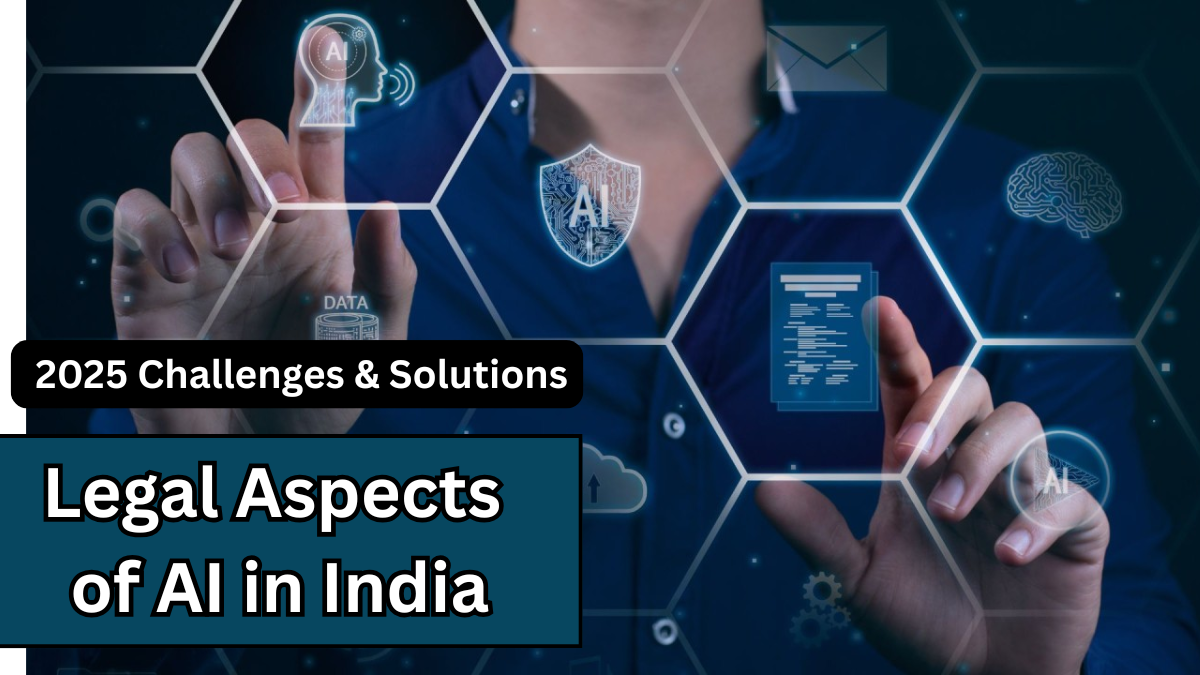Artificial Intelligence (AI) is rapidly transforming how we live, work, and interact with technology. However, as innovation accelerates, the Legal Aspects of AI in India 2025 are becoming increasingly complex. From privacy concerns to intellectual property disputes, policymakers, businesses, and legal experts are working together to address the challenges of this evolving field.

Why Are Legal Aspects of AI Important in 2025?
AI isn’t just about machines learning—it impacts people’s lives, decisions, and even rights. As we integrate AI into governance, healthcare, finance, and everyday applications, technology law needs to evolve to ensure accountability, fairness, and ethical use.
Key reasons why this matters:
-
Protection of user data – Preventing misuse of sensitive information
-
Accountability – Assigning responsibility for AI-driven decisions
-
Innovation with ethics – Balancing technological growth with human rights
Key Challenges in AI Regulation
India faces unique challenges when regulating AI in 2025.
-
Lack of comprehensive AI-specific legislation – Current laws do not fully address AI’s complexities
-
Data privacy and security – AI requires large datasets, often containing personal information
-
Intellectual property concerns – Who owns AI-generated content or inventions?
-
Bias and discrimination – AI algorithms may reflect societal biases, leading to unfair outcomes
-
Cross-border legal conflicts – AI operates globally, but laws are jurisdiction-specific
Legal Framework Governing AI in India
While there’s no single AI law yet, technology law in India draws from multiple legislations.
Aspect |
Relevant Law |
|---|---|
Data Protection |
Digital Personal Data Protection Act (DPDPA), 2023 |
Cybersecurity |
Information Technology Act, 2000 |
Intellectual Property |
Copyright Act, Patents Act |
Consumer Rights |
Consumer Protection Act, 2019 |
Sectoral Guidelines |
RBI, SEBI, and Healthcare Regulations |
Solutions for a Responsible AI Future
To tackle these challenges, India needs a proactive approach:
-
Drafting AI-specific legislation – A dedicated framework to address ethical and legal concerns
-
Stronger data privacy safeguards – Implementing robust user consent and data handling policies
-
Regulating AI in critical sectors – Healthcare, banking, and governance require stricter oversight
-
Promoting transparency – Mandating explainability for AI algorithms to build public trust
-
Global collaboration – Working with international bodies to harmonize AI regulations
The Road Ahead
AI offers tremendous opportunities, but without proper governance, it can pose significant risks. Strengthening the Legal Aspects of AI in India 2025 is essential to ensure AI serves society fairly and responsibly. As technology law evolves, collaboration between policymakers, tech companies, and legal experts will be the key to striking the right balance between innovation and accountability.
FAQs
1. Why are Legal Aspects of AI crucial in India for 2025?
Because AI influences decision-making in key sectors like healthcare, finance, and governance, regulating its use is critical to protect citizens’ rights and maintain ethical standards.
2. Does India have a specific AI law?
Currently, India does not have a standalone AI law. However, AI-related issues are managed under existing frameworks like the IT Act, DPDPA, and intellectual property laws.
3. What role does technology law play in AI regulation?
Technology law provides the legal framework for data protection, cybersecurity, and accountability, forming the backbone for AI governance in India.
4. What steps can India take to regulate AI effectively?
India needs to draft AI-specific legislation, strengthen privacy laws, ensure algorithmic transparency, and collaborate internationally for harmonized regulations.
Click here to learn more
